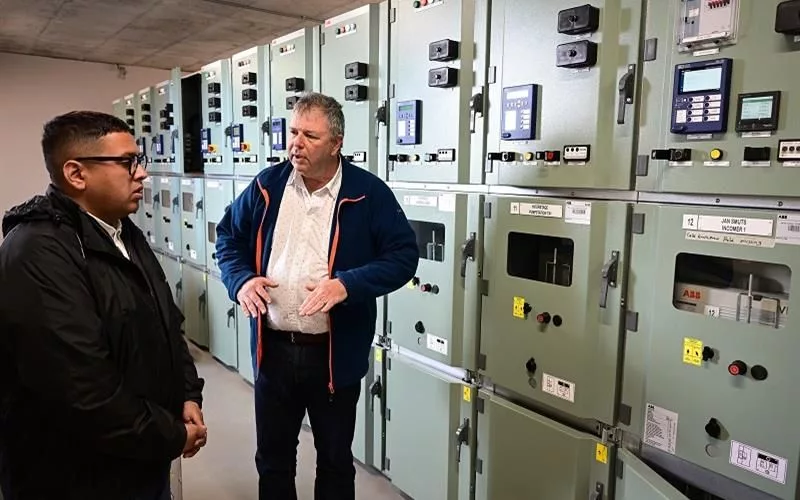Cape Town’s exceptional governance is unmatched in South Africa, thanks to its transparent and accurate management of public funds for delivering services. The city has achieved a clean audit for over 10 years, reflecting its steadfast commitment to accountability, good governance, and careful financial management. However, other municipalities need to follow suit to ensure the responsible use of public funds, and Cape Town’s infrastructure investment plan sets new standards for other cities to follow. Overall, Cape Town’s unwavering pursuit of excellence and progress makes it an engineering marvel of efficiency, accountability, and good governance.
What Makes Cape Town’s Governance Stand Out?
Cape Town’s proficiency in managing public funds for the delivery of public services with transparency and accuracy is unparalleled by any other city in South Africa. The city’s persistent commitment to transparent governance and adherence to legislative regulations have allowed it to achieve a clean audit streak for more than ten years. This commitment serves as a fundamental cornerstone for Cape Town’s growth as it embodies good governance, clear foresight, and prudent financial management.
In the vibrant center of South Africa, Cape Town stands out with its remarkable vigor and effective governance. The city has carved a niche for itself as a commendable pillar of excellence, a sentiment echoed by the Auditor-General (AG). Such acknowledgement is no trifling praise – it reflects the city’s proficiency in managing public funds for the delivery of public services with transparency and accuracy. The financial year 2022/23 marks another year in Cape Town’s clean audit streak, setting a precedent unparalleled by any other city in South Africa.
Persistent Commitment to Transparent Governance
Undeniably, the consistent clean audits in Cape Town serve as a testament to the city’s unwavering dedication to its citizens. It has been successful in framing itself as a government that is not only efficient but also accountable and transparent. Achieving this feat is not a one-time effort, but a continuous endeavor, an incessant quest for enhancing service delivery. This commitment is built on the solid foundation of accountability and good governance that the city has fostered for more than ten years.
However, this unique achievement also brings with it a degree of worry. The fact that Cape Town stands alone as the only metropolitan area to receive a clean audit underscores the need for other cities to elevate their performance. They need to ensure judicious utilization of public funds and strict adherence to legislative regulations governing public spending. Even amidst this concern, Cape Town proudly accepts its mantle of responsibility and continues to strive to maintain its exceptional recognition.
The Imperative for Other Cities to Follow Suit
Cape Town’s impressive commitment is also evident in its plan to allocate R39.5 billion towards infrastructure development over three years, from July 2024 until June 2027. This is part of the city’s ‘Building For Jobs’ Budget. This significant investment represents the most substantial commitment by a metropolitan municipality in South Africa towards a three-year infrastructure. Councillor Siseko Mbandezi, the City’s Mayoral Committee Member for Finance, underscores that a clean audit is not just a symbolic victory. It serves as a fundamental cornerstone for Cape Town’s growth, embodying good governance, clear foresight, and prudent financial management, which are crucial elements of the city’s development plans.
Defining Factors of a Clean Audit
A clean audit, as per the Auditor-General, is not merely about maintaining a well-managed balance sheet. It also involves having a seamlessly functioning system of checks and controls. This includes robust financial and performance management disciplines and the ability to operate strictly in line with applicable legislation. Furthermore, successful clean audits are marked by well-managed projects allowing for quick identification and correction of deficiencies, ensuring adherence to timelines, budgets, and quality standards. These factors essentially constitute a well-operating control environment, which is vital for achieving clean audits.
Cape Town: A Model of Excellence and Progress
Through the perspective of the Auditor-General, Cape Town is not just a city; it’s an engineering marvel of efficiency, accountability, and good governance. The city’s commitment to its residents is steadfast, its pursuit of improvement is ceaseless, and its vision for the future is ambitious. As the only metro with a clean audit in South Africa, Cape Town is more than just a geographic location. It represents an epitome of excellence, a beacon of good governance, and an emblem of development and progress. With its infrastructure investment plan, Cape Town is setting new standards for other municipalities, laying the groundwork for a brighter, more prosperous future for its residents.
1. How does Cape Town’s governance stand out in South Africa?
Cape Town’s governance stands out in South Africa for its proficiency in managing public funds for the delivery of public services with transparency and accuracy, reflected in its clean audit streak for more than ten years. The city’s commitment to transparent governance and adherence to legislative regulations embodies good governance, clear foresight, and prudent financial management.
2. What is the imperative for other cities to follow suit?
Other cities need to follow suit to ensure the responsible use of public funds and strict adherence to legislative regulations governing public spending. Cape Town’s infrastructure investment plan sets new standards for other cities to follow, emphasizing the need for judicious utilization of public funds and continuous improvement in service delivery.
3. What is a clean audit, according to the Auditor-General?
A clean audit is not just about maintaining a well-managed balance sheet but also involves having a seamlessly functioning system of checks and controls. This includes robust financial and performance management disciplines and the ability to operate strictly in line with applicable legislation. Successful clean audits are marked by well-managed projects allowing for quick identification and correction of deficiencies, ensuring adherence to timelines, budgets, and quality standards, constituting a well-operating control environment.
4. What is Cape Town’s infrastructure investment plan?
Cape Town’s infrastructure investment plan allocates R39.5 billion towards infrastructure development over three years, from July 2024 until June 2027, as part of the city’s ‘Building For Jobs’ Budget. It represents the most substantial commitment by a metropolitan municipality in South Africa towards a three-year infrastructure.
5. What defines Cape Town as a model of excellence and progress?
Cape Town is defined as a model of excellence and progress with its commitment to its residents being steadfast, and its pursuit of improvement being ceaseless. The city’s vision for the future is ambitious, setting new standards for other municipalities with its infrastructure investment plan, laying the groundwork for a brighter and more prosperous future for its residents.
6. How is Cape Town’s clean audit achievement unique?
Cape Town’s clean audit achievement is unique as it stands alone as the only metropolitan area to receive a clean audit in South Africa. This underscores the need for other cities to elevate their performance in terms of judicious utilization of public funds and strict adherence to legislative regulations governing public spending.












